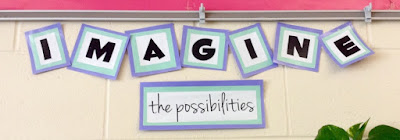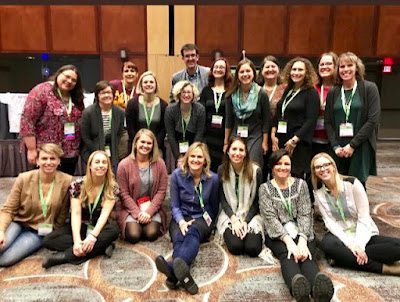Simple Motivation in Reading Class
 |
| Is it motivation or manipulation? |
There's an old adage you've probably heard more than a few times before: "You can lead a horse to water, but you can't make him drink." I hear it more often than I'd like in my professional life. As a teacher who works with struggling readers, it would be easy to call my kids unmotivated learners, to blame them for not wanting to learn, and write off the bad days as "not my fault." Luckily, I don't believe any of those ideas.
This morning, I was in a meeting where another teacher was looking for validation from others about her decision to add incentives to independent reading. She began with, "I know I shouldn't do it, but..." She went on to say that independent reading just isn't working for her kids, and she needs to do this. "I just need to meet them where they are," she said. In my head I thought, "And why is this where they are?"
This approach to motivation is not uncommon in my district. With two kids in elementary school and one that just finished, I see firsthand how teachers add incentives to everything. They earn a party every time I turn around. Yes, the kids get excited.
"We get pajama day!"
"We get fort day!"
"We get electronics day!"
Honestly though, the lead up has always more exciting than the actual experience. I suppose when you've had pajama day fourteen times in the last three years, it loses its shine. I also suspect the teachers get tired or have actual learning to accomplish, and so the treat does not turn out to be as big a part of the day as the kids imagined it would be.
What I really wonder is, do the teachers feel it works? Does it change kids' behavior? Do they really work harder? There's plenty of research out there to support the idea that rewards work in the short term and lose their effectiveness over time. In his article, "The Risk of Rewards," Alfie Kohn says, "When the rewards stop, people usually return to the way they acted before the program began. More disturbingly, researchers have recently discovered that children whose parents make frequent use of rewards tend to be less generous than their peers (Fabes et al., 1989; Grusec, 1991; Kohn 1990)" (http://www.alfiekohn.org/article/risks-rewards/). Kohn goes on to say that rewards and punishments are really the same thing, "ways of trying to manipulate someone’s behavior." Sadly, I think most kids realize this. I suspect it makes them feel powerful that they can get adults to do these things.
But do they feel safe? One of the things I learned in my foster parenting training is that kids with strong, supportive, boundary-setting parents feel safe. Routines and consistency make kids feel secure, like the adult really is in charge. I often wonder about rewards then. Does a kids who can manipulate adults into giving them a dog treat, I mean a lollipop, every time they do something, feel less safe? Do they feel unmoored, like they might possibly be the one in charge?
 |
| Book choice is everything! |
In my classroom I have chosen not to use rewards for reading. We read because it's really good for our brains and because reading a just-right, highly-engaging book is its own reward. And my kids do it. It's often the most productive part of our day! It takes time at the beginning of the year to ease into the reading habit, to get books into kids' hands, and to establish a classroom environment that works for all of us. It also takes a few minutes to get everyone settled in each day. But now, every time I glance around the room, my students are reading. Yes, I get a napper every once in a while, and kids who are absent frequently struggle more, but in general, even my toughest cookies read. It's just the expectation, pure and simple. And it's not exhausting. I don't have to plan anything, bring anything, spend anything, clean up anything.
Maybe teachers are looking at motivation wrong. Maybe we shouldn't try to make the horse drink. Instead, what if we looked at the quality of the water? If it's clean, fresh and cold, the horse might think it looks pretty good and might just choose to drink of his own free will.
Happy Friday!
Lynn
Happy Friday!
Lynn



Comments
Post a Comment